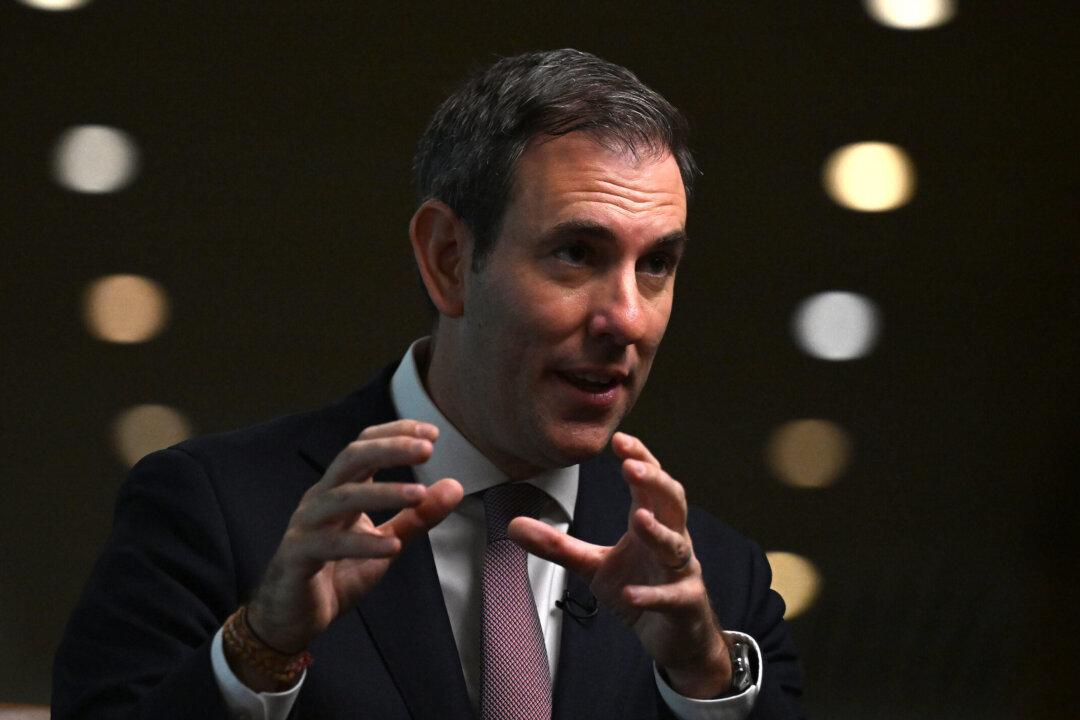
Australian Treasurer Jim Chalmers conducts television interviews at Parliament House in Canberra, Australia, on Oct. 23, 2022. AAP Image/Mick Tsikas
Australia’s superannuation system is facing an overhaul, with the government looking at ways to block the early release of retirement money.
Treasurer Jim Chalmers proposed further protections for superannuation to safeguard retirement savings in a speech on Monday.





